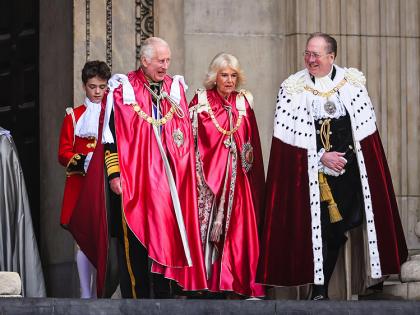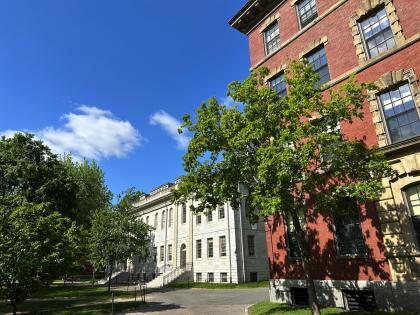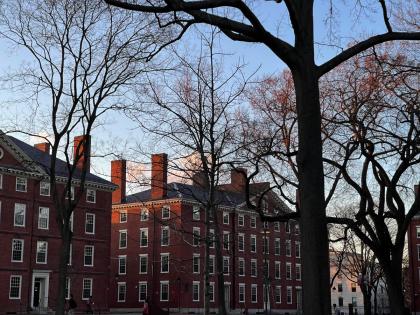The Arnold Arboretum anticipated closing a deal last December to sell the Case Estates, its 62.5-acre property (complete with barn and two other structures) in Weston, Massachusetts, to the town of Weston for $22.5 million. But first the town “decided they needed to test some soils,” says Robert E. Cook, Arnold professor and director of the arboretum. “What they discovered is that there are significant concentrations of lead and arsenic in the soils. It was farmland—in particular, orchards—before it was given to Harvard in 1946. Between 1900 and about 1940, the prevailing pesticide in use was lead arsenate, particularly in orchards.” Its staying power is proven by its existence in the soils today.
The town put off the closing. Harvard conducted a detailed assessment of the location and severity of contamination. In a draft decontamination plan submitted to the town’s Board of Selectmen in July, the arboretum proposes to remove about 8,500 cubic yards (13,600 tons) of contaminated soil and replace it with clean fill. The town and Harvard had until August 31 to decide whether the plan is acceptable. “It is our hopeful expectation,” selectman Michael H. Harrity was reported early in the month as saying, “that they will clean up the site appropriately, and that we will buy a clean site when it’s done.”
The plan’s intent is to make the now-contaminated land suitable for unrestricted future use, including making safe seven single-family house lots that the town hopes to sell, along with three others, to recoup some of the purchase cost of the entire parcel. The rest of the land, about half the property, would be retained as open space for public use. It is safe to walk on.
The contaminated soil would be hauled to an out-of-state treatment facility in covered trucks. Vehicles leaving the site would be hosed down with water to prevent bad soil in tire treads from moving elsewhere. The work would take two to three months to complete.
The arboretum decided to sell the Case Estates, says Cook, because “we no longer had a use for it with respect to our mission, and an internal review at Harvard revealed no other use at the University. As an asset, we felt it would perform better as money than as land. Also, the town has long indicated a desire to purchase it.”
The arboretum priced the property at its value for residential development, and then gave the town first refusal. The cost of the cleanup has yet to be determined, but Cook says it will be substantial: “It means a lot less money for the arboretum than the $22.5 million we had anticipated.”







